When we think about upgrading our kitchens, energy efficiency isn’t always the first thing that comes to mind. Most of us get excited about sleek finishes, touchless controls, and smart features. But here’s the truth: appliances that save energy don’t just cut down on utility bills—they also create a more sustainable home. The good news is that many of today’s smart kitchen gadgets are designed to do both.
I’ve noticed that the small changes—like choosing a smarter fridge or switching to an induction cooktop—make a bigger difference than we think. These appliances save time and also waste less energy without compromising on performance. If you’ve ever wondered how to blend modern technology with eco-friendly living, this list will give you some solid inspiration.
Let’s explore 13 of the best energy-efficient smart kitchen appliances that can help you save money and live a little greener.
Another Good Read: 15 Smart Kitchen Design Ideas For Small Spaces
1. Smart Refrigerators with Energy Monitoring

A smart refrigerator does more than keep your groceries cold. Many models now come with built-in energy monitoring, which allows you to see how much power you’re using and adjust accordingly. Some even send alerts if the door is left open too long, preventing wasted energy.
The great thing about these fridges is how intuitive they’ve become. They can adjust internal temperatures automatically depending on how full the fridge is, and some even have compartments that can switch between fridge and freezer modes as needed. That flexibility keeps your food fresher while consuming less power overall.
In my own kitchen, upgrading to a smart refrigerator felt like a big investment at first, but I noticed the difference in my monthly electric bill almost immediately. It’s one of those purchases that pays you back over time.
2. Induction Cooktops
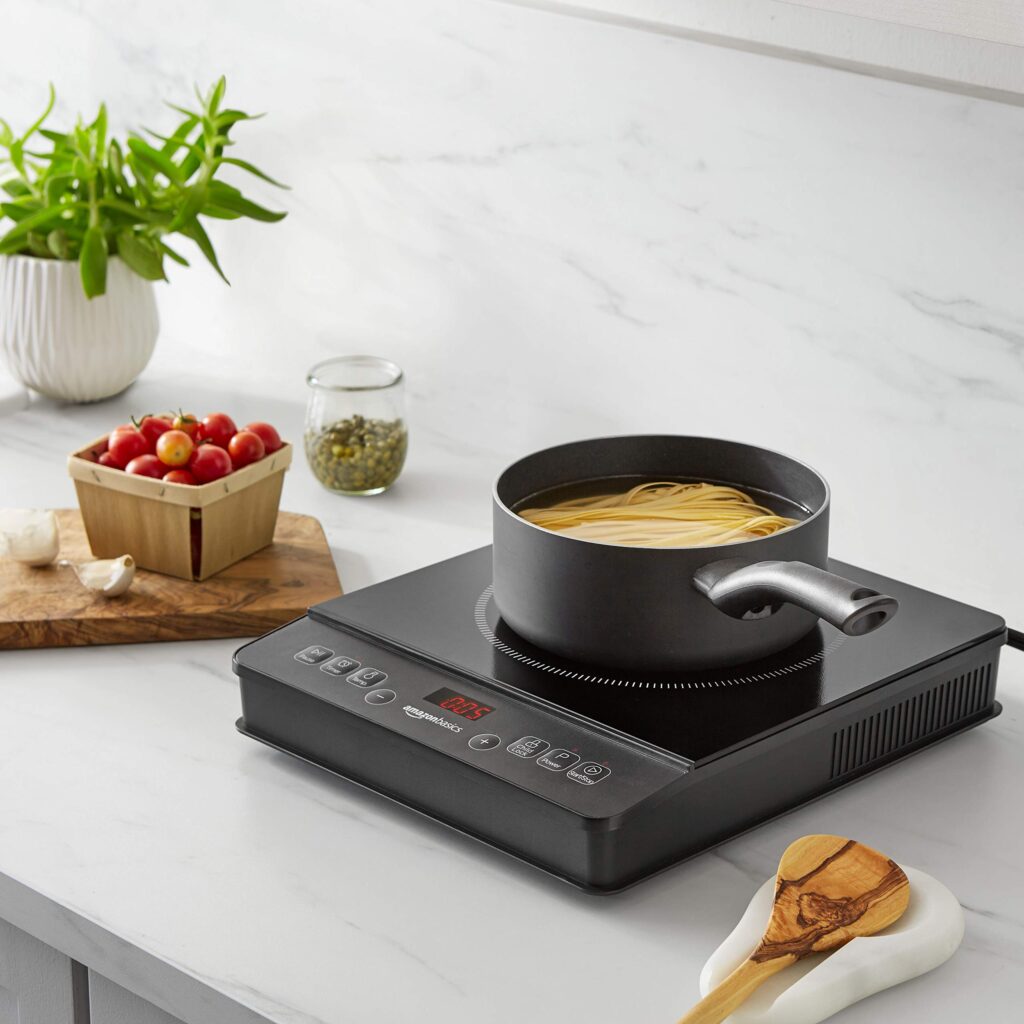
Induction cooktops are known for their energy efficiency because they heat cookware directly using electromagnetic currents instead of wasting energy through surrounding air. Unlike gas or electric stoves, nearly all the energy is transferred into the pan, making them both faster and more efficient.
Smart induction cooktops also come with features like automatic shutoff, precise temperature control, and timers, which cut down on unnecessary energy use. Some even pair with apps to suggest cooking settings for specific recipes, ensuring you don’t overheat or overcook.
When I first used an induction cooktop, I was surprised at how quickly it boiled water compared to my old stove. It’s not only efficient but also makes cooking feel smoother and more controlled.
3. Smart Dishwashers
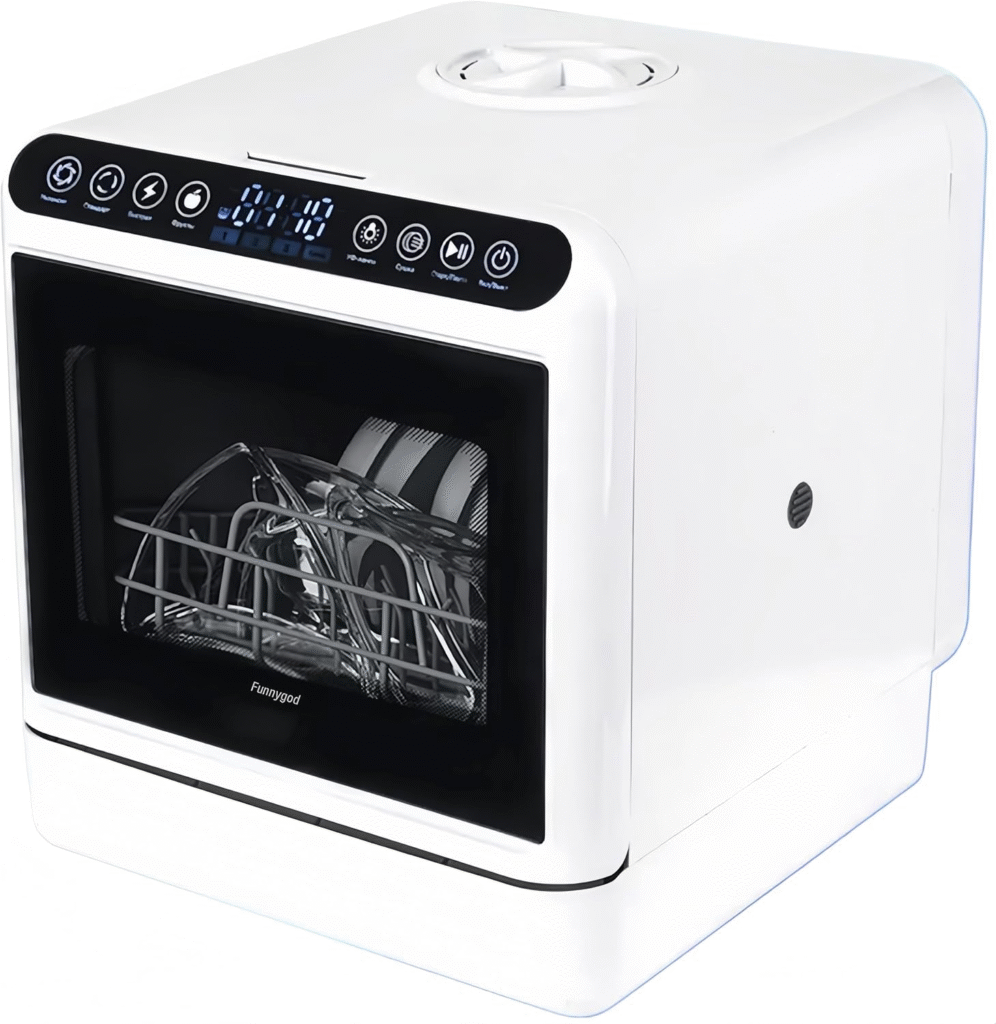
Modern dishwashers are designed with eco-modes and smart sensors that adjust water and energy use depending on the load size. This means you don’t have to worry about wasting energy when running a smaller load.
Some smart dishwashers also allow you to schedule cycles during off-peak electricity hours, which can save even more money on your energy bills. With Wi-Fi connectivity, you can monitor cycles and even receive alerts when your dishes are done.
The difference in energy and water consumption between my older model and the smart dishwasher I upgraded to was night and day. It’s reassuring to know every cycle is optimized, and my dishes come out sparkling clean without wasting extra resources.
4. Energy-Efficient Smart Ovens
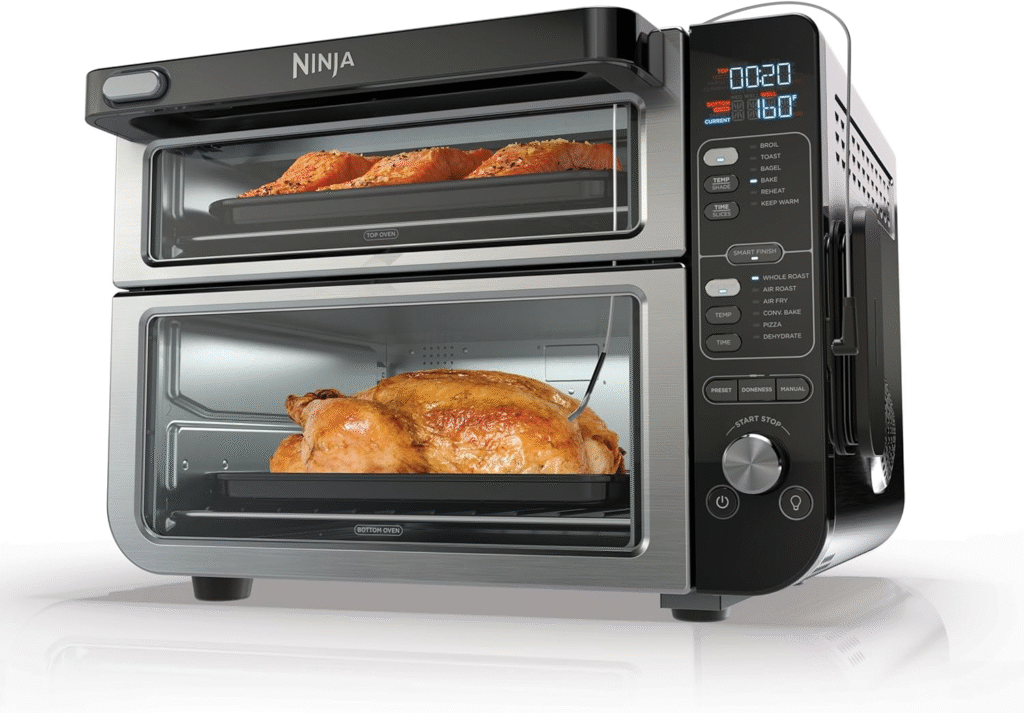
Smart ovens use convection technology and advanced insulation to cook food faster and more evenly, which reduces energy consumption. Some models even have dual-cooking zones, so you don’t need to heat the entire oven for a small meal.
With voice controls and smartphone integration, you can preheat your oven on your way home or check cooking progress without opening the door. These small details prevent wasted heat and keep cooking times efficient.
I love using my smart oven’s app to experiment with recipes. The precision helps me avoid overcooking, and I’ve noticed how much less energy I use compared to my bulky traditional oven.
5. Smart Coffee Makers
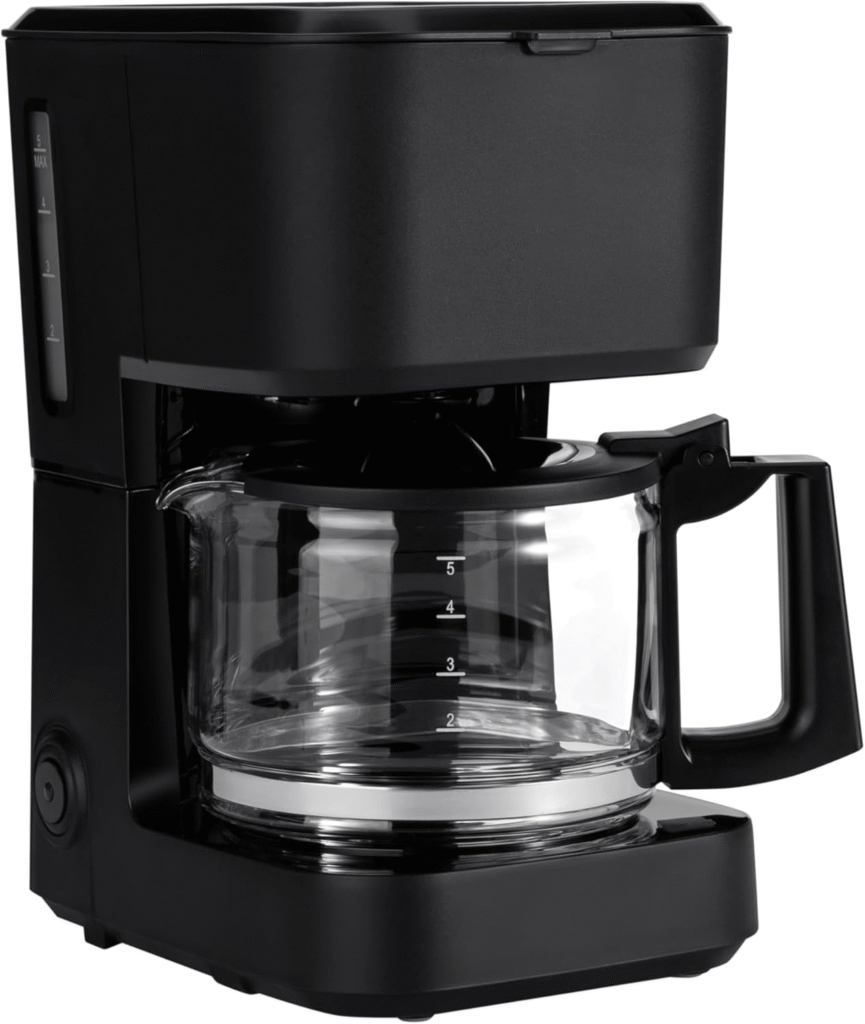
Coffee makers may not seem like big energy users, but those that run constantly or lack an auto-shutoff can waste a surprising amount of electricity. A smart coffee maker solves that by brewing only when you need it and turning off automatically.
Some models connect to voice assistants, letting you say, “Brew my coffee,” without even pressing a button. Others allow you to schedule brewing times, so your coffee is ready when you wake up without running all night.
I love how mine shuts off automatically after brewing. No more worrying that I left it on when I rush out the door—it’s efficient and saves peace of mind.
6. Smart Pressure Cookers
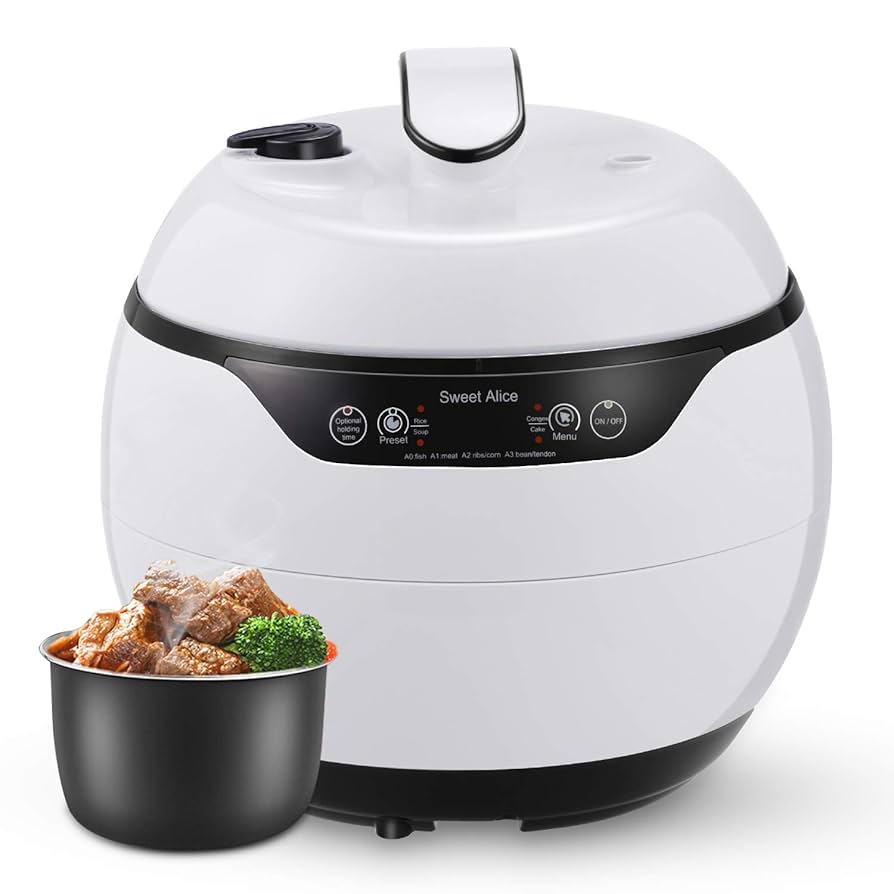
Pressure cookers are naturally efficient because they cook food quickly under high pressure. Smart versions take that efficiency further by offering preset programs, scheduling, and remote control features.
Instead of leaving an oven running for hours, a pressure cooker can make soups, stews, or even yogurt in a fraction of the time. Many models also have keep-warm modes that maintain temperature without using much energy.
Using my smart pressure cooker, I’ve cut down cooking times dramatically. It’s especially handy for meal prepping since I can cook large batches without feeling guilty about wasted energy.
7. Smart Toaster Ovens
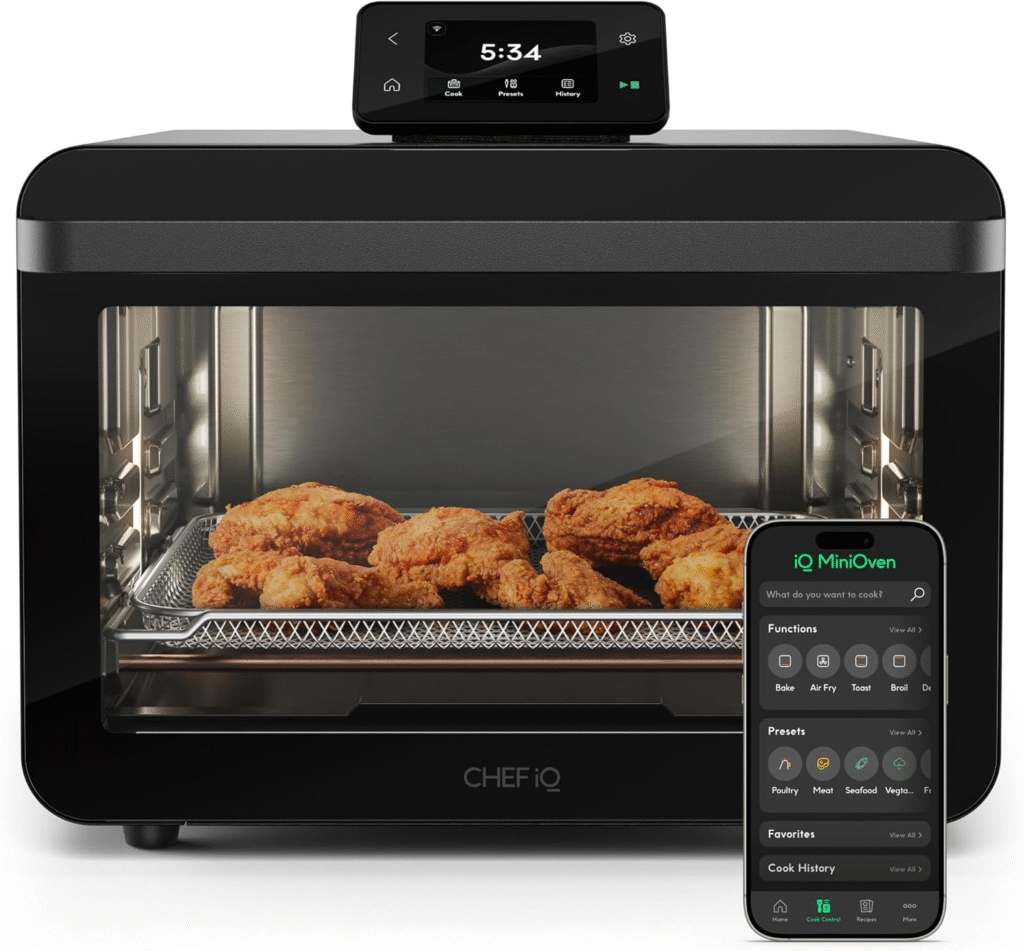
Toaster ovens may seem small, but they’re incredibly efficient compared to heating up a full-sized oven for smaller meals. Smart versions often include air-fryer and convection modes, which cook faster while using less electricity.
They usually come with pre-programmed settings that adjust temperature and time automatically, making it harder to waste energy. Some even suggest recipes and settings through connected apps.
I often use my toaster oven for quick dinners, and I’ve noticed it not only cuts my cooking time but also keeps my energy bills in check. It’s a win-win for both convenience and sustainability.
8. Smart Microwaves
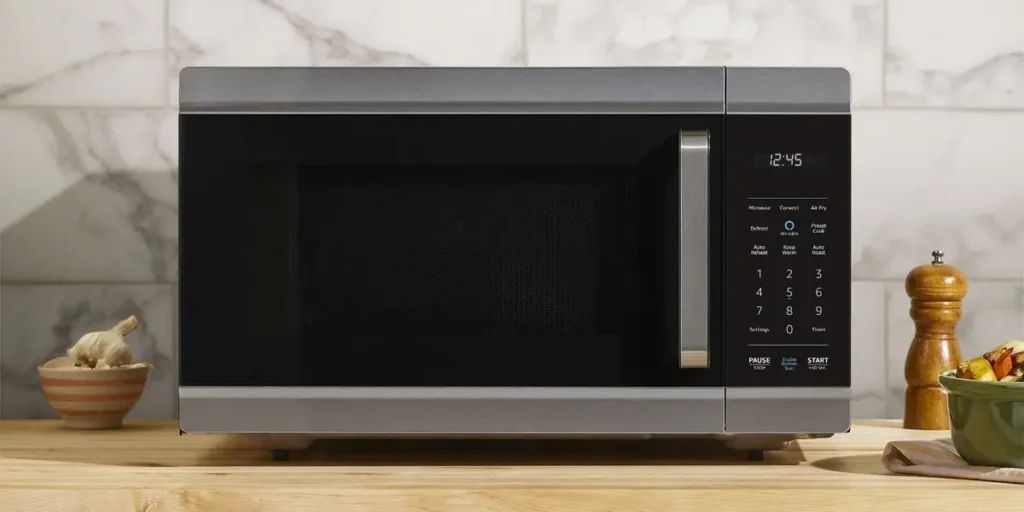
Microwaves are already energy savers compared to ovens, but smart models take it further. They come with sensors that detect food moisture levels and automatically adjust cooking times, so you don’t waste power by overheating food.
Voice and app controls make it easier to operate without leaving the microwave running too long. Many models even pair with recipe apps, making reheating and cooking more efficient.
I like how my smart microwave gives me reminders when food is done, so nothing sits inside running extra seconds unnecessarily. It’s a small upgrade that makes a noticeable difference.
9. Smart Range Hoods

Range hoods may not seem like an obvious appliance for energy efficiency, but newer smart models adjust fan speeds based on the amount of heat and steam detected. This reduces wasted energy compared to running on high speed unnecessarily.
Some hoods also feature energy-efficient LED lighting, which lasts longer and consumes less electricity than older halogen bulbs. With app integration, you can control ventilation from anywhere, ensuring it only runs when needed.
I appreciate how mine turns on automatically when I start cooking, then shuts down after the air clears. It’s a simple feature, but it saves energy and keeps the kitchen fresh.
10. Smart Blenders
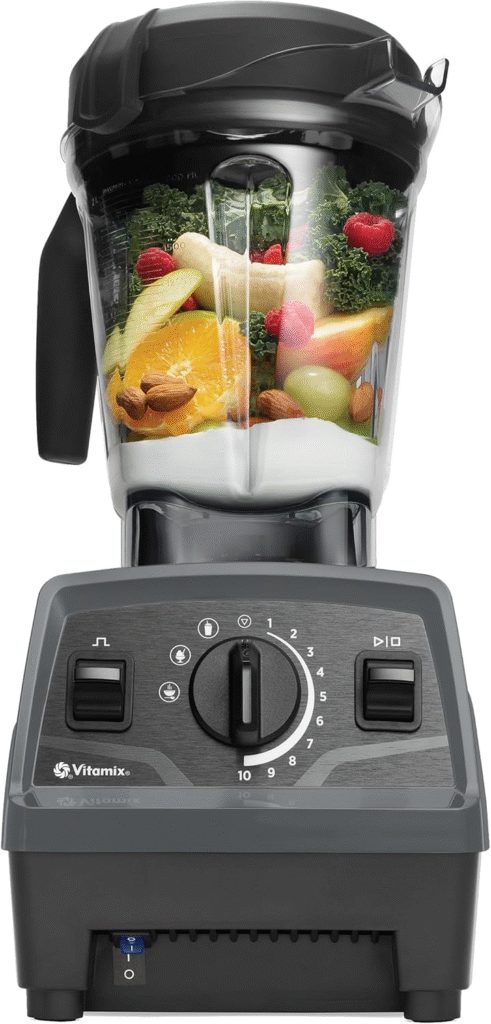
Blenders are quick appliances, but many run on high power unnecessarily. Smart blenders adjust speed and blending time automatically depending on what you’re making, ensuring efficiency.
Some connect to recipe apps and guide you step by step, preventing wasted ingredients and energy. They also feature energy-efficient motors designed to last longer and work smarter.
I’ve used mine for smoothies and soups, and I love how it automatically stops at the right consistency. It’s efficient, saves time, and I never feel like I’m overworking the machine.
11. Smart Slow Cookers
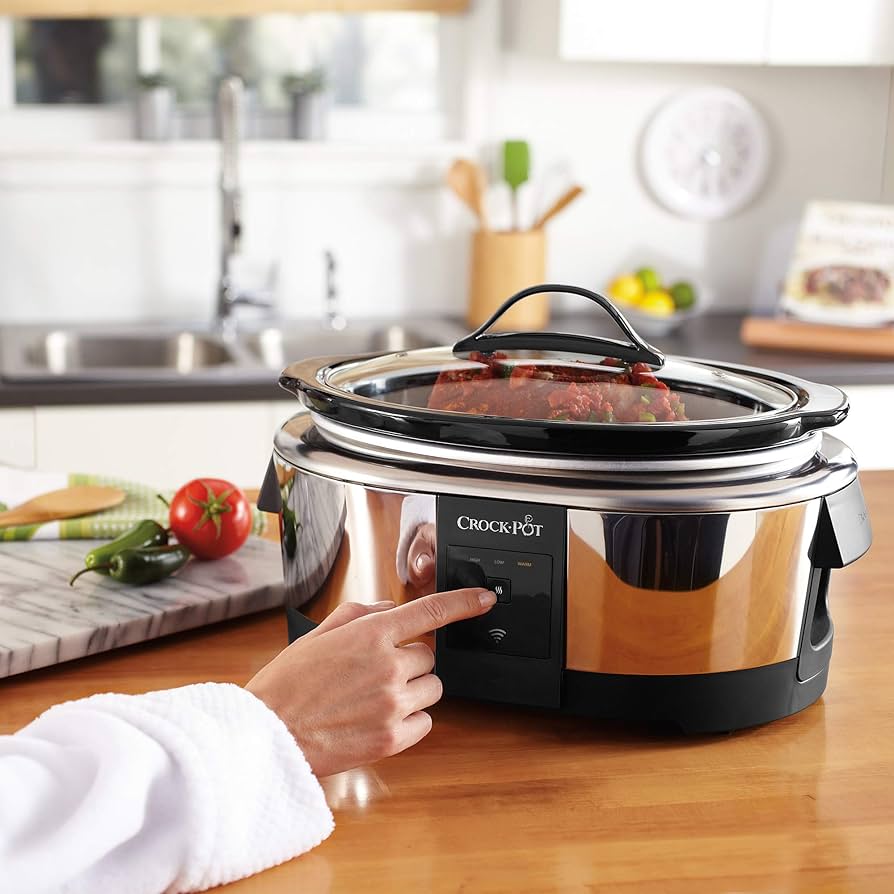
Slow cookers may seem like they use a lot of energy since they run for hours, but in reality, they consume less power than ovens. Smart versions let you monitor and adjust temperatures remotely, so you don’t accidentally overcook and waste energy.
They’re perfect for set-and-forget meals, but with Wi-Fi features, you can fine-tune the cooking cycle even while away from home. This helps reduce unnecessary cooking times.
I’ve found my smart slow cooker invaluable on busy days. It saves me from takeout while still keeping energy use lower than traditional methods.
12. Smart Kettles
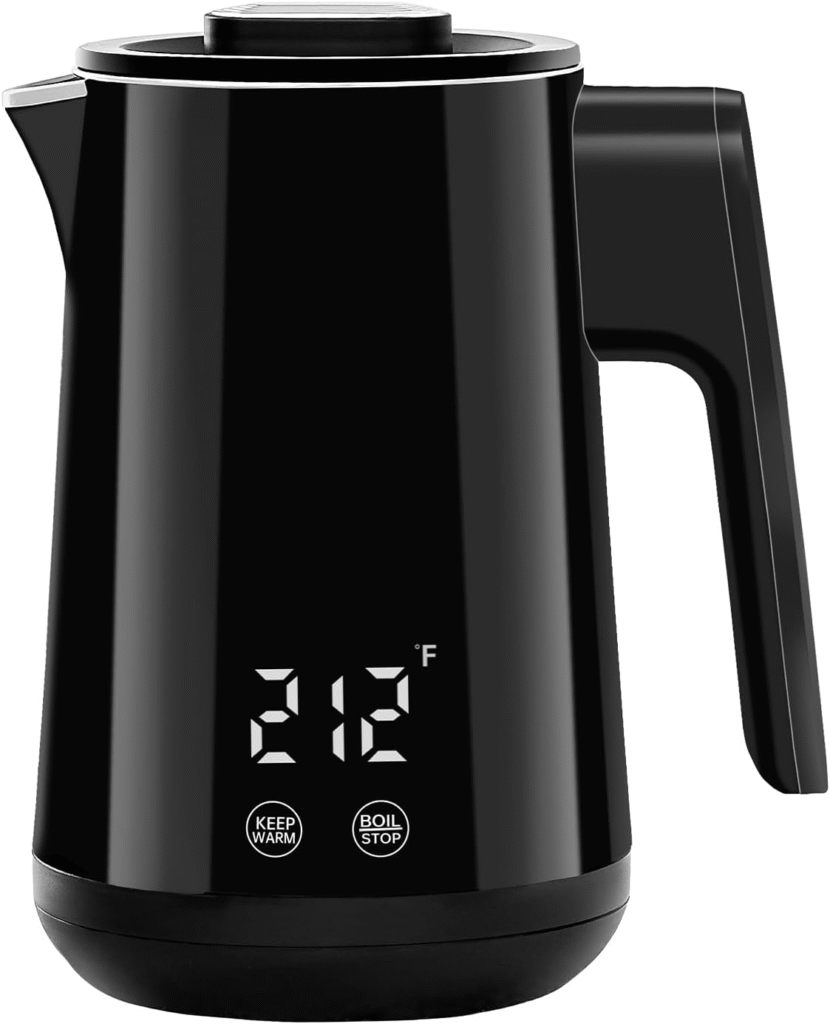
Electric kettles are already efficient, but smart kettles take it up a notch by heating only the amount of water you need and allowing you to set exact temperatures. This avoids boiling excess water and wasting energy.
They often come with scheduling and remote control options, so you can have hot water ready without keeping the kettle running unnecessarily.
As someone who loves tea, I use my smart kettle daily. I boil only what I need, and I appreciate that it doesn’t waste energy boiling to maximum temperature every time.
13. Smart Lighting in the Kitchen
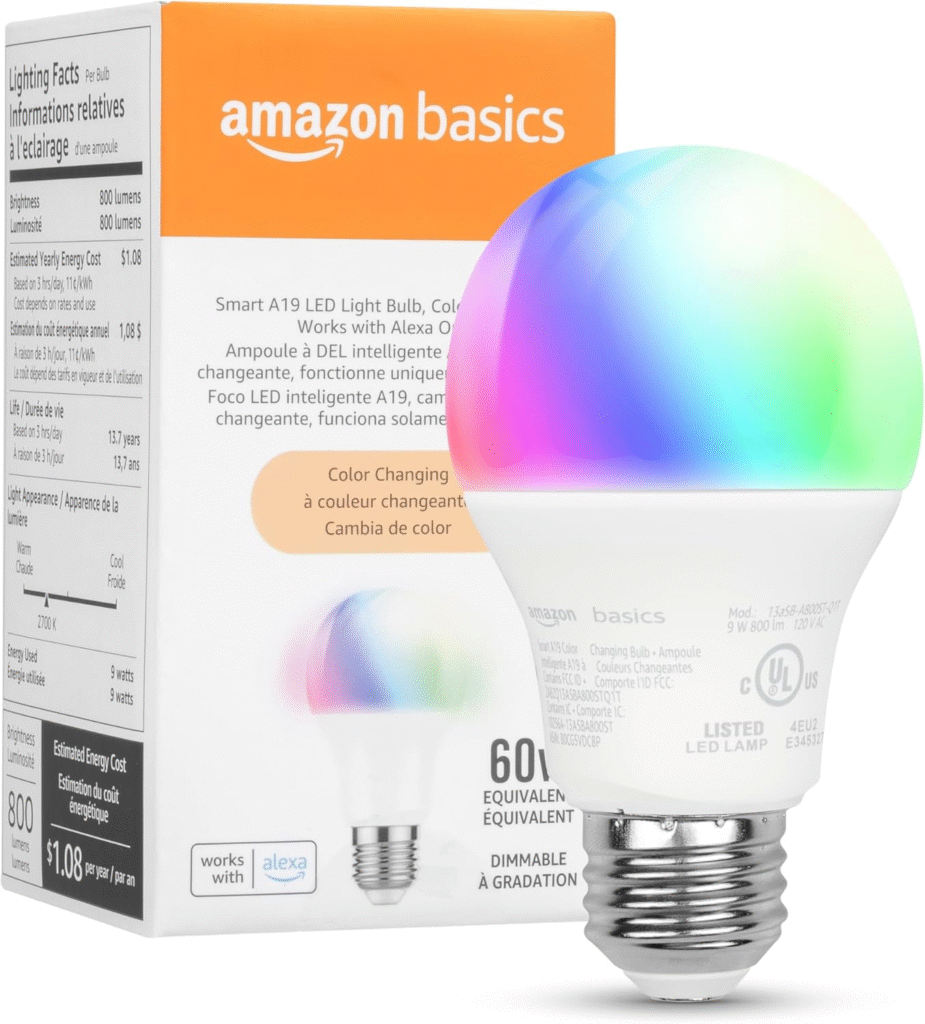
Lighting isn’t technically an appliance, but it plays a huge role in energy efficiency. Smart LED bulbs use a fraction of the energy compared to traditional bulbs, and they last longer.
With scheduling, dimming, and voice control, you can avoid leaving lights on unnecessarily. Some even adjust brightness automatically based on natural light levels in the room.
Switching to smart kitchen lighting was one of the easiest upgrades I made, and it instantly reduced my energy bills. Plus, it gives the space a modern touch.
Final Thoughts
The kitchen is the heart of most homes, and it’s also one of the biggest energy users. By switching to smarter, more efficient appliances, you’re not just saving money—you’re building a more sustainable routine. Each appliance on this list brings something unique to the table, from convenience to better cooking results, all while being kinder to the environment.
The beauty of energy-efficient smart appliances is that you don’t need to overhaul your kitchen all at once. Even one or two upgrades can start making a noticeable difference. Over time, those small changes add up to lower bills, less waste, and a greener home.
So the next time you’re considering an upgrade, think about not only how stylish or convenient it is, but also how much energy it saves. Your wallet—and the planet—will thank you.
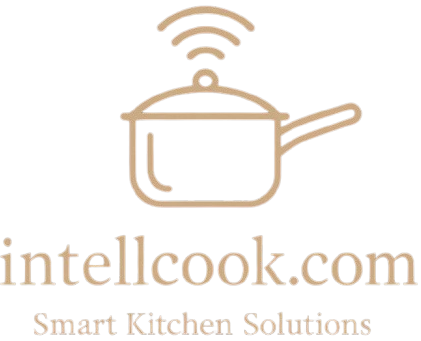
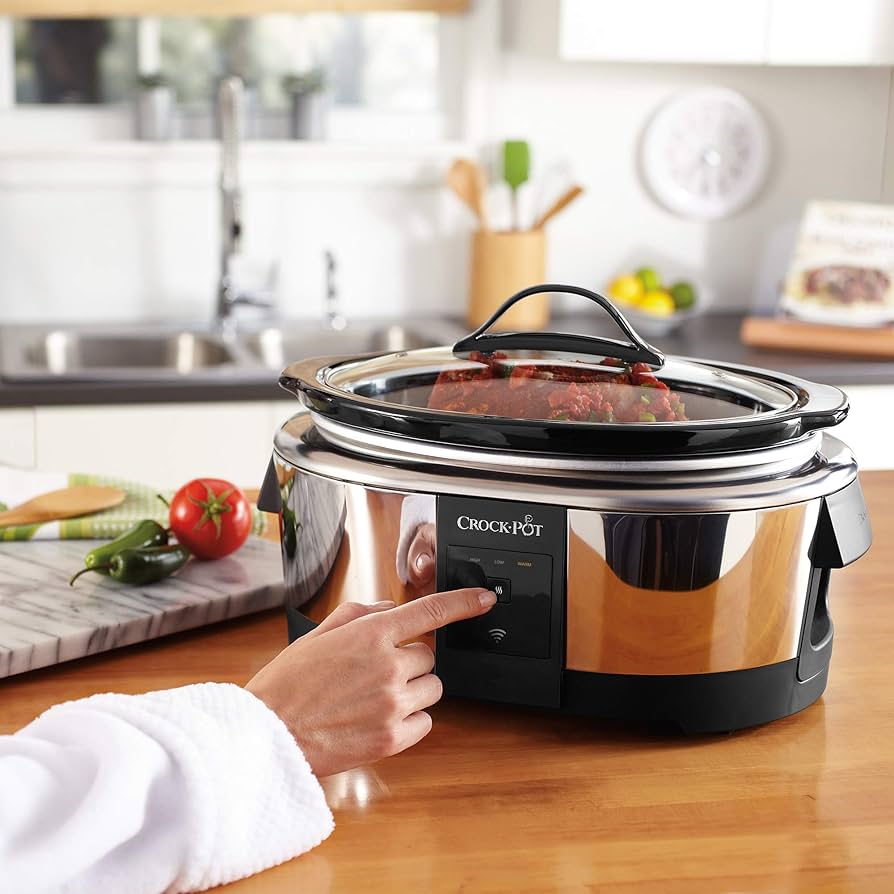
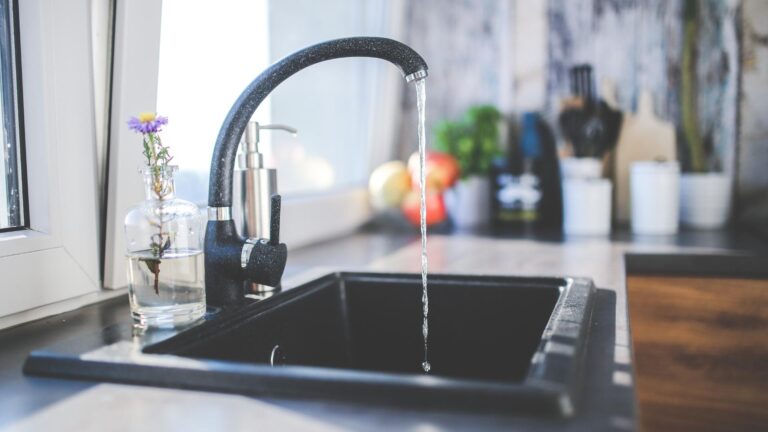
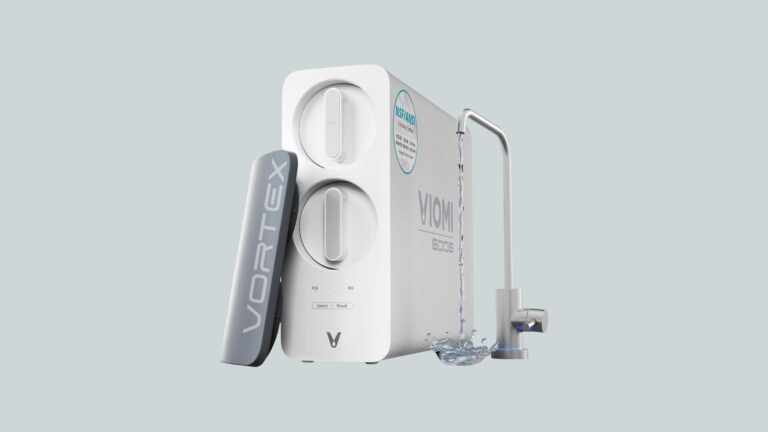
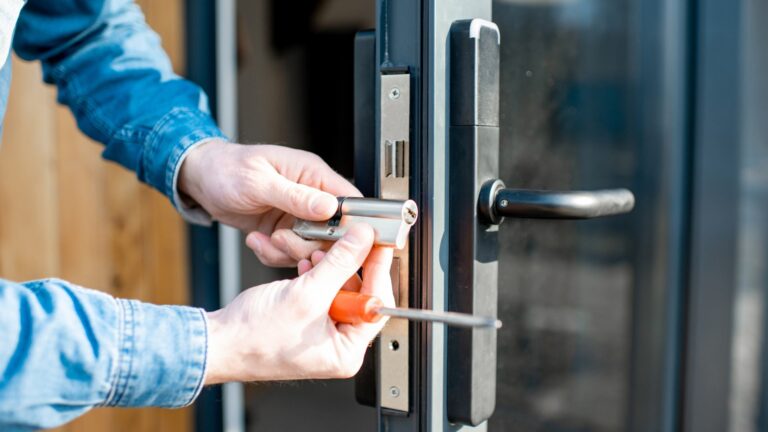
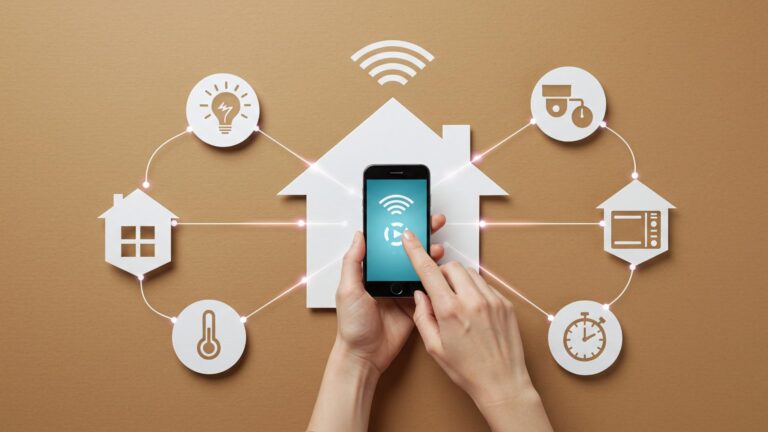
2 thoughts on “13 Best Energy-Efficient Smart Kitchen Appliances”
Pingback: Best Cookware Set Under $100 – Reviews & Top Picks - Intell Cook
Pingback: Why Smart Ovens Are Becoming Popular In Modern Homes - Intell Cook